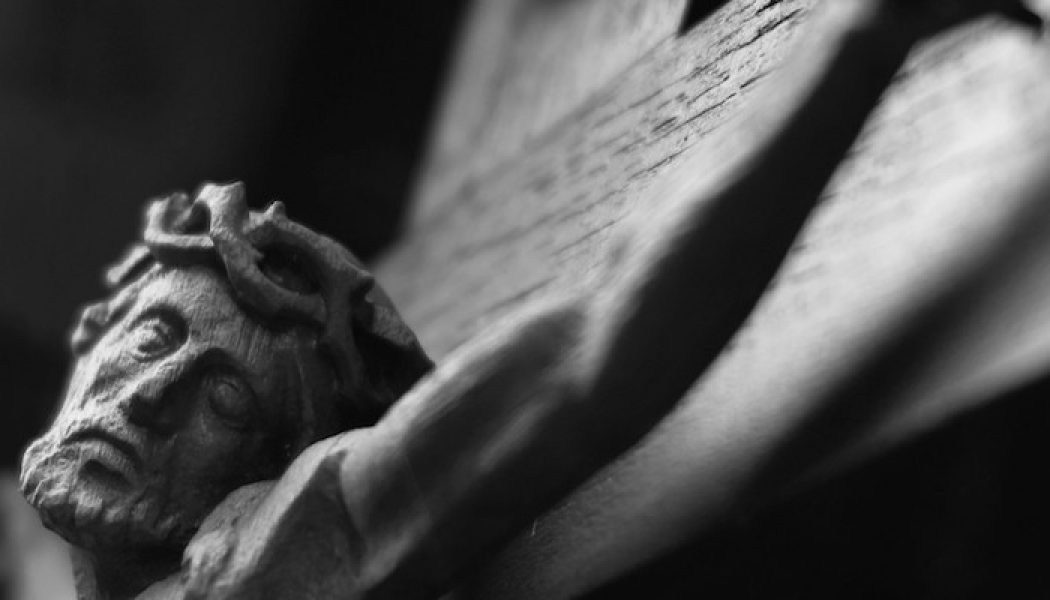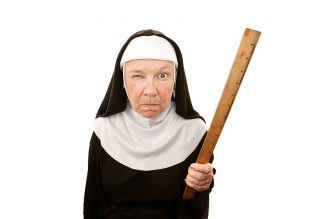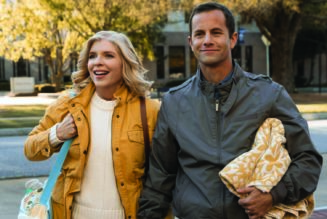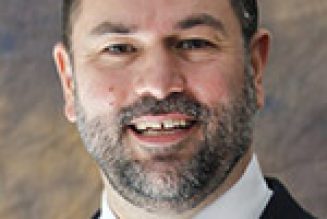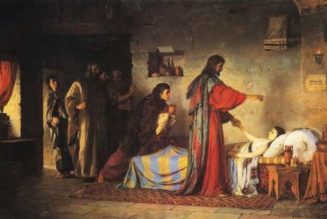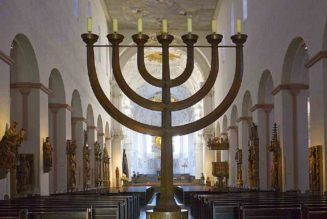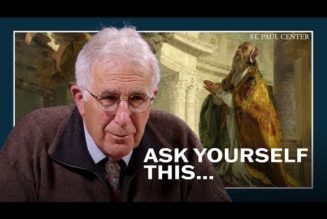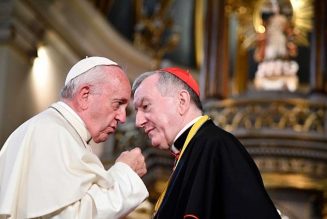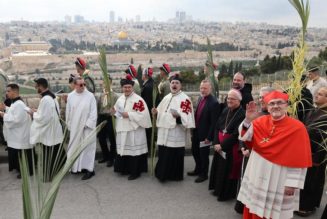
Things fall apart; the centre cannot hold.” These words from W. B. Yeats’s poem “The Second Coming” were first published one hundred years ago, in a time not wholly dissimilar to ours. The 1918-1919 flu epidemic had ravaged much of Europe, tearing through communities and families without discrimination. (Yeats nearly lost his wife and unborn child to the flu.) The stench of World War I still hovered over the trenches and new conflicts simmered. People were unsure about the future, while political leaders grappled with a changing world. Yet through all these trials the faith remained at the center and held the Western world together, albeit weakly at times.
Today, however, there is a notable difference. While we do not face the miseries of World War I or the brewing storms that led to World War II, a spiritual shift in axis has allowed once firm foundations for our common life to fall apart.
The demonstrations we observe today against true injustices have in places been co-opted for an agenda that wants to shatter the center of Western culture. Rather than protesting peacefully against racial discrimination, some have turned their energy to destroying churches or symbols of Christianity. Others are redefining nature to accommodate moral license. Still others use executive power, legislatures, or courts to marginalize people of faith and the works of Christian service. An organized chaos has fractured our common identity and threatens to unravel the heritage we have been entrusted with to pass to our children.
Behind all this is the removal of God from the center. It is God—and for Christians, Jesus—who holds the fallen, fragile world together. God, however, is no longer the center of our social order. No doubt the pandemic has revealed our fragility, but the pandemic is not the cause of the dysfunction, which was already there.
The pandemic has exposed a thinness in soul that can only come from distancing ourselves from God. By removing God from the center, our culture has come to the point of societal dissolution. The prioritization of our physical well-being (as important as that is) over our spiritual well-being betrays a myopic focus on the temporal over the eternal, the horizontal over the vertical.
A culture that does not have faith in God and his creation is a culture that will not hold. Perhaps this moment we face as a nation is just another moment in history, or perhaps this is a time of epochal change that will forever alter who we are and how we understand ourselves. The answer to this question hinges on the question of God. Do we as a people united in language and place also have common ground with respect to our place before our creator, or have we abandoned our heritage and made the individual the measure of all things?
Christopher Dawson wrote frequently about the place of “cult” in a properly ordered society. The culture of a people is defined primarily by who or what those people worship or place at the center—what they identify as the purpose for their existence. From the founding of our country there was a sense that God was essential to our common life. George Washington understood that religion and virtue were necessary to hold an otherwise diverse population together. The cultural center held because we had a common moral foundation rooted in Judeo-Christian beliefs—except for slavery, which haunts our national soul to this day.
Now, however, we are becoming a country untethered from the truth that a loving Father created us to know, love, and serve him in this life, which is the way to our happiness in the next. Our happiness, temporal and eternal, depends on turning somewhere else for a vaccine to inoculate ourselves from the spiritual virus that wreaks much more damage than anything COVID-19 can inflict. We seem to be forgetting this. Our physical health is indeed a great dignity that we should protect, but our spiritual health is what determines our eternal destination. To let the physical eclipse the spiritual is to surrender to the devil and his empty promises.
We should turn to a person, Christ. The Church has a unique role to play in holding the center. It is a visible reminder that Christ lives and continues to act among us. It is not surprising, then, that statues of saints have been defaced, church buildings set ablaze, and even physical harm done against the faithful in the name of progress. Perhaps those inflicting this new woke morality are not fully aware of what they do, but the devil is, and he is no doubt using the current moment to do his work.
The Church—bishops, priests, religious, and all the faithful—must commit herself in this time of uncertainty to strong witness to the faith. Only in this way can we stand against the work of the great spiritual being Christians know as the Adversary. The faithful—and I speak specifically here to myself and my brother bishops—have a duty to be a voice of reason in these unreasonable times. At our episcopal ordination, we entered fully into Christ’s three-fold office of priest, prophet, and king. As priests we are called to offer sacrifice, the sacrifice of the Mass but also the sacrifice of our lives. This time of worldwide pandemic provides new ways for each of us to offer our daily sacrifices for the sanctification of the world. Today there is no shortage of ways we must all sacrifice.
We must also make certain the Mass remains the source and summit of our Christian life. The one, true sacrifice of Christ is the sacrifice that all other sacrifices should be grafted into. No doubt civil authorities have a right and duty to protect the population, but the Mass cannot become a luxury less important than other public gatherings. Should another shutdown occur, the Church must be prepared to defend the proper place of worship. The Mass is essential to the spiritual well-being of every Christian. Certainly, the Church must respect civil authority and accept limitations to what defines a prudent gathering of the faithful, but civil authority should also respect the place of a religious community, at least as much as it tolerates (or promotes) other public gatherings. The faith, especially safe participation in the sacraments, is essential.
The prophetic office demands that the Church teach the truth in season and out of season. While pews may be less full due to safety concerns, our need to teach the saving power of Christ is no less urgent. Bishops, priests, and religious should creatively find ways, as has happened in so many places, to bring the gospel to the faithful. Technology is a useful tool for this work, but personal contact must also continue. Calls and emails, proper availability of confession, evangelization and catechesis must now be done in innovative ways to bring Jesus into our communities.
The kingly office, or the office of governance, should be exercised to lead people to Christ. It is not an office of authority over the faithful, but an authority given to the Church, working through the bishops, to lead people to Christ. As we move through this pandemic, hard decisions need to be made due to a whole host of practical considerations. But they should be made in light of the mission given to the Church to draw all people to Christ. If Jesus is the measure by which decisions are made, the Holy Spirit will bring good out of bad. We must pray that the closing of parishes or schools, as difficult as this is for the entire community, can mysteriously transform into good if Christ, rather than financial or legal considerations, is at the center.
My brother bishops and I can only lead if we place ourselves before Christ every day in prayer and receive the prayers of the faithful. If the Church is not praying, then the Holy Spirit is not invited to act. Nature does not permit a vacuum; when we remove Christ the space is filled with something or someone else—always something that is not as good for us, and very often something that is evil.
Without specific time dedicated exclusively to God in prayer and worship, then that time will be filled with things that keep us from our loving Creator. But when we find time daily to put ourselves before God to worship him and petition him, then we can hear his voice. It is then that we are converted and radiate to the world the love that the Father has for each one of us as his beloved daughters and sons, a love that is so needed today. In that love the center begins to hold once again.
Yeats’s words ring true for us today, but they need not be true. Let us work and pray to keep Jesus at the center to hold this fallen world together and redeem each of us.
Samuel J. Aquila is the archbishop of Denver.
First Things depends on its subscribers and supporters. Join the conversation and make a contribution today.
Click here to make a donation.
Click here to subscribe to First Things.
